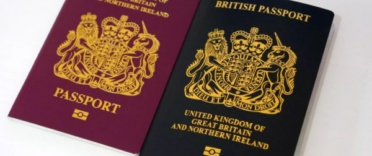
HSBC has announced its overdraft fee will rise to 39.9% EAR (equivalent annual rate) from 14th March 2020 in order to comply with new regulations being enforced by the Financial Conduct Authority (FCA).
I'm with HSBC, how will the changes affect me?
The FCA changes will ensure that you are better protected against a spiral of overdraft fees and have a better chance of clearing your overdraft each month. At present, around 52 million people have a current account in the UK of which almost 19 million use an arranged overdraft, almost 14 million use an unarranged overdraft and 7 million of those use both.
If you are a with HSBC then from 14th March 2020 the following changes will apply:
- no daily £5 charges for being in an unarranged overdraft
- a 39.9% EAR* (variable) interest rate charged on the amount you have borrowed, for an arranged or unarranged overdraft
- a monthly maximum fee of £20 (reduced from £80) for using an unarranged overdraft
- a £25 unarranged overdraft buffer in case you accidentally go into your overdraft
*based on an assumed arranged overdraft of £1,200.
Additionally, HSBC has updated the way you see your balances within your HSBC banking app. Previously (before 24th November 2019) your available balance would include your arranged overdraft. The update now shows only your available balance and does not include your arranged overdraft amount in that figure. This is to help customers distinguish between their own money and borrowed money in an effort to help reduce the habitual use of overdrafts.
The below table shows the changes being made to account balances:
HSBC account balance changes (effective 24th November 2019)
| Examples | Before 24 November 2019 | From 24 November 2019 |
| Credit balance | Balance: £300 Arranged overdraft £500 Available balance: £800 |
Balance: £300 Arranged overdraft: £500 Available balance: £300 |
| Debit balance | Balance: -£200 Arranged overdraft: £500 Available balance: £300 |
Balance: -£200 Arranged overdraft: £500 Available balance: -£200 |
source: HSBC
New overdraft alerts
HSBC has also announced it will be changing its text alerts system. It has introduced new messages that will be sent to customers when they are due to or have gone into their overdraft. HSBC has said 'these new alerts aim to help you manage your balance and will give you an opportunity to avoid any overdraft charges.'
All customers with a telephone number logged on file have automatically been enrolled to receive the new text alerts. Those without a telephone number on file will need to provide their number to receive the new alerts and those who wish to opt-out can easily do so by contacting HSBC.
Will I be better off with the new HSBC overdraft fee?
Current HSBC customers are charged fees between 9.9% - 19.9% on arranged overdrafts so the increase to 39.9% is a substantial change with some customers potentially being charged 4 times more than they are now. HSBC has however said that 70% of customers will either be better off or the same as they due to the introduction of maximum monthly charges and the new overdraft buffer.
The higher rate charge will be applied to all HSBC accounts except the student bank account.
All banks will have to comply with the new regulations set by the FCA however the new overdraft fees may vary from bank to bank. If you think you could get a better deal elsewhere and are looking to switch bank accounts, take a look at our article to see the best deals and offers currently available.
Why are the overdraft fees changing?
Back in June 2019 the FCA announced that it was introducing changes to overdraft charges in a bid to protect consumers, particularly vulnerable consumers, against hefty overdraft charges. In 2017 it was recorded that banks made over £2.4billion from overdrafts with 30% coming from unarranged overdrafts. Shockingly, more than 50% of the unarranged overdraft fees came from less than 2% of customers in 2016. The FCA has said that in some cases unarranged overdraft fees were so substantial that they were more than ten times the fees for payday loans.
The FCA will enforce the following changes from 6th April 2020:
- Stopping banks and building societies from charging higher prices for unarranged overdrafts than for arranged overdrafts.
- Banning fixed fees for borrowing through an overdraft – no more fixed daily or monthly charges. Fees no longer charged for having an overdraft facility.
- Overdraft fees charged using a simple annual interest rate.
- Arranged overdraft fees to advertise the APR to help customers compare them against other products.
- New guidance to reiterate that refused payment fees should reasonably correspond to the costs of refusing payments.
- Banks and building societies will be required to do more to identify customers struggling financially and to help to reduce repetitive overdraft usage.
Andrew Bailey, Chief Executive of the Financial Conduct Authority said:
'The overdraft market is dysfunctional, causing significant consumer harm. Vulnerable consumers are disproportionately hit by excessive charges for unarranged overdrafts, which are often ten times as high as fees for payday loans. Consumers cannot meaningfully compare or work out the cost of borrowing as a result of complex and opaque charges, that are both a result of and driver of poor competition.'
'Our radical package of remedies will make overdrafts fairer, simpler and easier to manage. We are simplifying and standardising the way banks charge for overdrafts. Following our changes, we expect the typical cost of borrowing £100 through an unarranged overdraft to drop from £5 a day to less than 20 pence a day.'
'The decisive action we are taking today will give greater protection to millions of people who use an overdraft, particularly the most vulnerable.'





